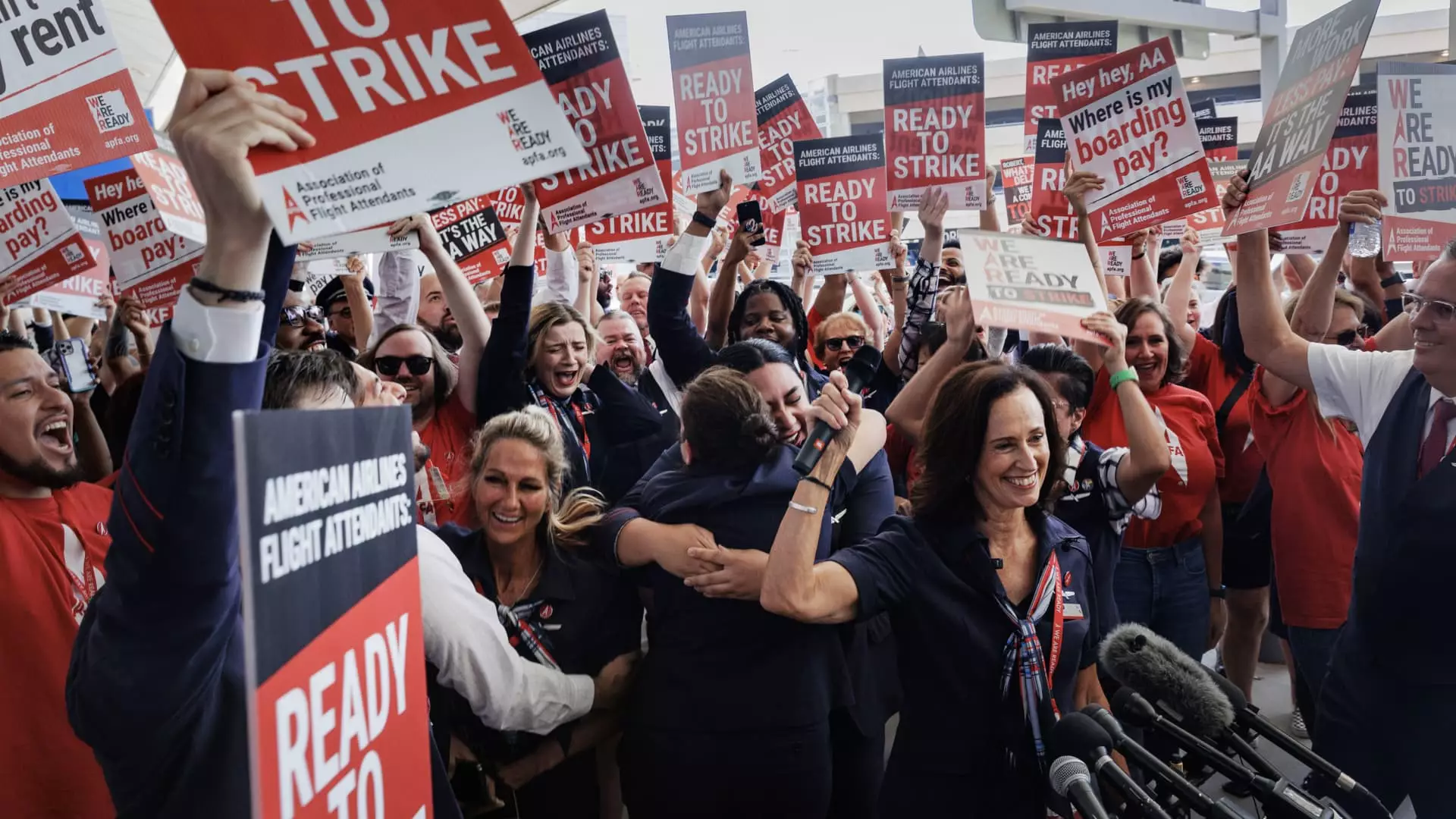In a significant development for the airline industry, American Airlines flight attendants have successfully ratified a labor agreement that promises substantial wage increases and a sense of stability following prolonged negotiations. This labor deal stands out in the backdrop of a wider trend in labor relations within the aviation sector, reflecting the growing fervor among workers to secure fair compensation and working conditions post-pandemic. The approval of the agreement by 87% of flight attendants is a clear signal of unity and a desire for improvement among American Airlines’ employees, who number around 28,000.
The newly ratified contract includes immediate wage increases of up to 20.5% as of October, accompanied by retroactive pay that acknowledges the lengthy duration of contract discussions. According to Julie Hedrick, president of the Association of Professional Flight Attendants, this contract is a vital breakthrough in a long-standing struggle for better compensation. The financial uplift comes at a critical moment as the cost of living has sharply risen, impacting workers significantly. These raises not only enhance the economic stability of the airline’s crew members but also represent a growing recognition of their essential role in the aviation ecosystem.
From the perspective of American Airlines’ leadership, the successful resolution of this labor deal alleviates pressing concerns about potential industrial action. The very real threat of a strike loomed over the negotiations, prompting Secretary of Transportation Pete Buttigieg and Secretary of Labor Julie Su to participate in mediation efforts back in June. Both federal officials’ presence underscored the importance of reaching a satisfactory conclusion to this impasse, particularly as more than 160 lawmakers backed negotiations to foster resolution in the airline industry. CEO Robert Isom’s remarks following the deal reflect a collective sigh of relief among executives while also highlighting the necessity of inspiring confidence in their workforce.
The momentum achieved by American Airlines cabin crews is not an isolated incident; it resonates with a broader movement seen in various sectors advocating for improved labor conditions. Similar wage increases and contract resolutions have been observed in diverse industries such as automotive and entertainment. For instance, Boeing employees are currently deliberating on a new contract that promises notable wage hikes, emphasizing the collective strength of unions in pushing for better terms. The recent negotiations signify a pivotal moment where workers, emboldened by the precedent set by previous labor actions, are beginning to assert their demands with greater vigor.
The passage of this labor agreement is expected to set a benchmark for future negotiations within the aviation sector and beyond. As American Airlines flight attendants enjoy their newfound contract benefits, attention will now shift to groups like United Airlines, which are still embroiled in their own discussions, and Alaska Airlines’ cabin crew, who recently rejected a tentative deal. These developments will likely influence the backdrop of labor relations for years to come, reshaping expectations and strategies in both the aviation industry and the larger labor movement in the United States.



Leave a Reply